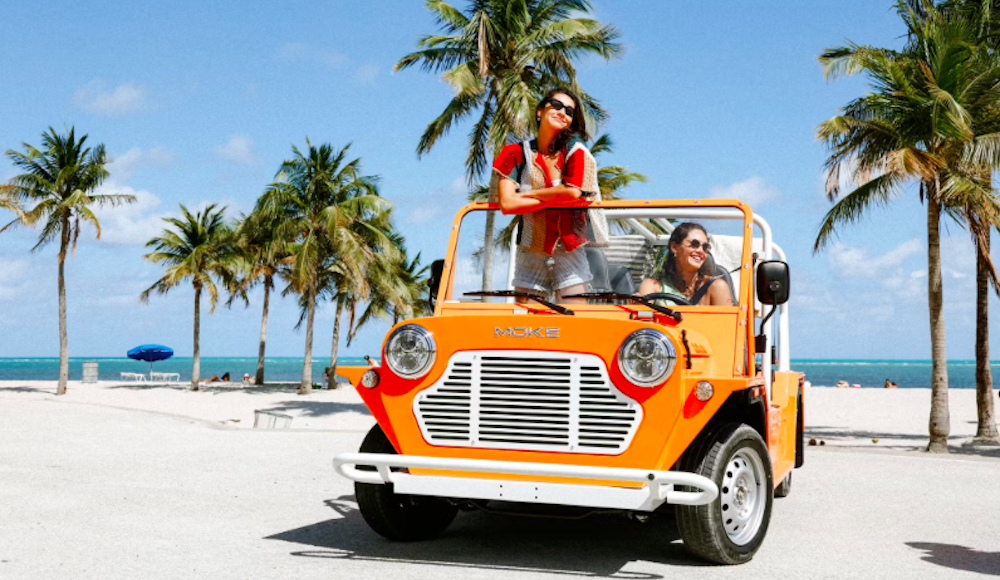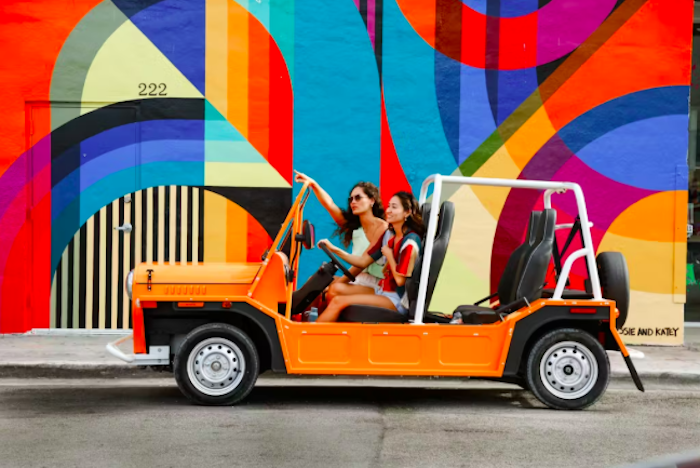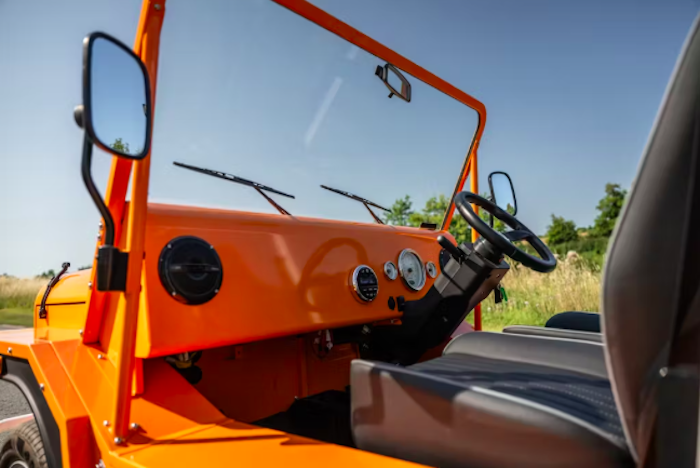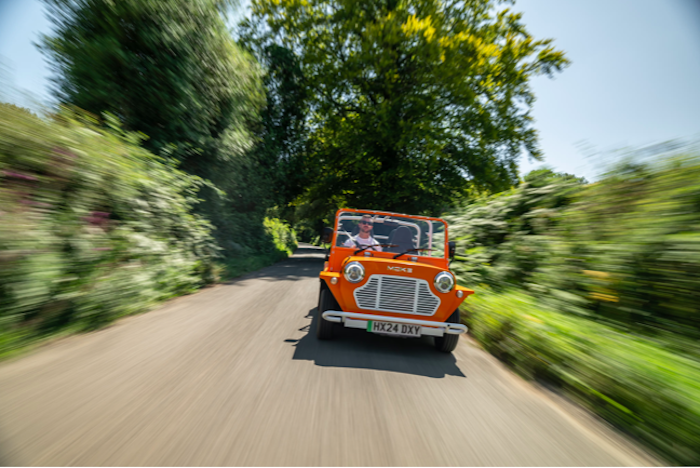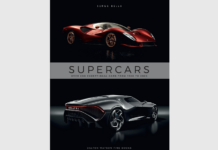London’s gray North Circular Road is not the glamorous “lifestyle” location that Moke International will be using to market its reborn, electric beach car. In none of the photos above or below will you find the bumper-to-bumper traffic or the fender-bender chaos of the Hangar Lane gyratory system. Yet that’s exactly where I find myself—and if the Moke can survive here, then a jaunt to the harbor club or ocean-view restaurant should be a breeze.
My destination is perhaps a little more on-brand for the Moke: the Concours of Elegance at Hampton Court. It’s a good 20 miles each way, and with speed limits as low as 20 mph and as high as 50, I’d be lying if I said I didn’t have a touch of range anxiety. According to official measures, the 10.5-kWh battery pack is good for 54 miles.
There are three drive modes to choose from on the Moke. Eco restricts power for the sake of efficiency but is probably a bit too lethargic for the cut and thrust of the city, even on a weekend. The performance setting, indicated by a small palm tree on the dash, unleashes all 45 horses; I worry that, on my drive, it might sap too much of the battery. I opt for the default option, hoping it will get me across London and back while keeping apace with the city’s impatient motorists.
Charm goes a long way, and the Moke’s cute appearance does seem to brighten an already sunny Sunday for my fellow travelers. The original Moke was, of course, built on the platform of the Mini, but this model shares nothing with its predecessor except styling. That, and a driving position that feels like one’s sitting on rather than in the car.
The driving position is great for visibility, which is unencumbered by such trifles as doors or tailgate. Aside from the near-vertical windscreen, the Moke is completely open to the elements, although a bimini top can be fitted to keep the rain or sun off. Fastened by press studs on the windscreen rail, Velcro around the roll cage, and some pull straps, the top takes a few minutes to install but fits neatly once on.
Should one get caught in a downpour, without time to snap and strap the top, there’s no need to be too concerned. The whole interior is waterproof, with marine-standard switches and grommets to keep the electrics dry, seats upholstered in vinyl, and splash-proof speakers for the Bluetooth stereo. It’s all very well-finished, with a rugged look and feel.
There’s also a pleasant polish to the way the Moke drives. The unassisted steering has a slightly odd heft to it at first, not unlike a fairground dodgem. It feels as if, should one spin the wheel beyond its 2.75 turns lock-to-lock, the vehicle should start rolling in reverse, but direction changes are activated by push buttons between the front seats.
The Moke is quite lively in the default drive mode, especially off the line, and although the performance does taper as one reaches its top speed of 50 mph, there’s enough there that you don’t feel too left behind in modern traffic. Light the palm tree on the dash, and the Moke verges on the vigorous—it can even spin up an inside tire on tight corners. That personality is no doubt helped by the fact the Moke weighs less than 1763 pounds (800 kg), but it doesn’t feel flimsy at all. The ride, if a little bouncy at times, isn’t harsh.
I accomplished my round trip with over a quarter of battery still in reserve, even though I used palm tree performance for the last few miles home. My experience suggests that as many as 80 miles might be eked out from the Moke’s driveline in ideal conditions.
Moke International has the capacity to build 500 examples in the U.K. each year and can sell up to 325 in the U.S., priced from $41,900. Of course, you could buy a “real” car for considerably less … but that would be missing the point entirely. The new Moke is frivolity and fun, achieved with some quite serious design and engineering.
It’s no joke, this Moke.
Report by Nik Berg for Hagerty.com
Photo Credit By Moke International

